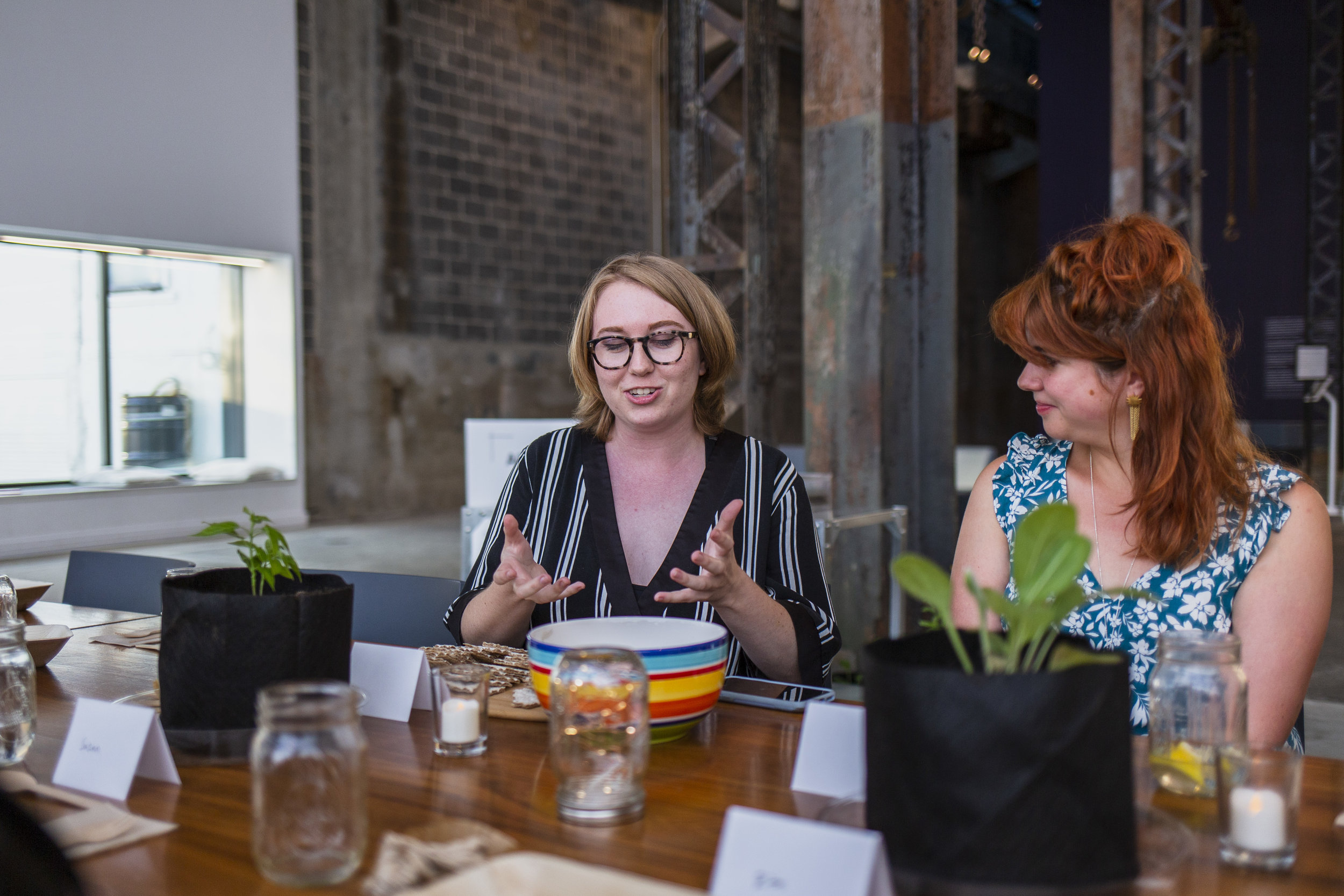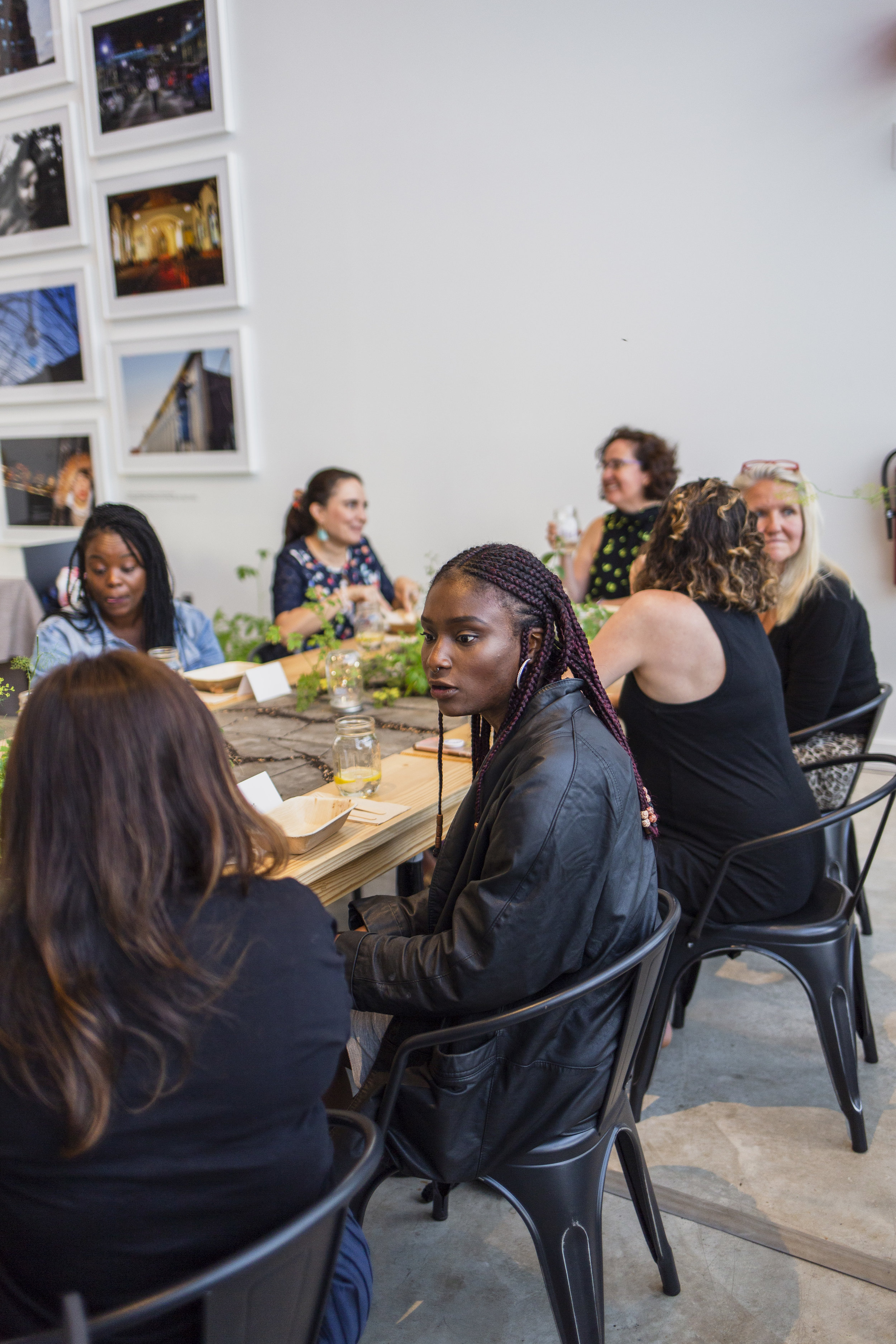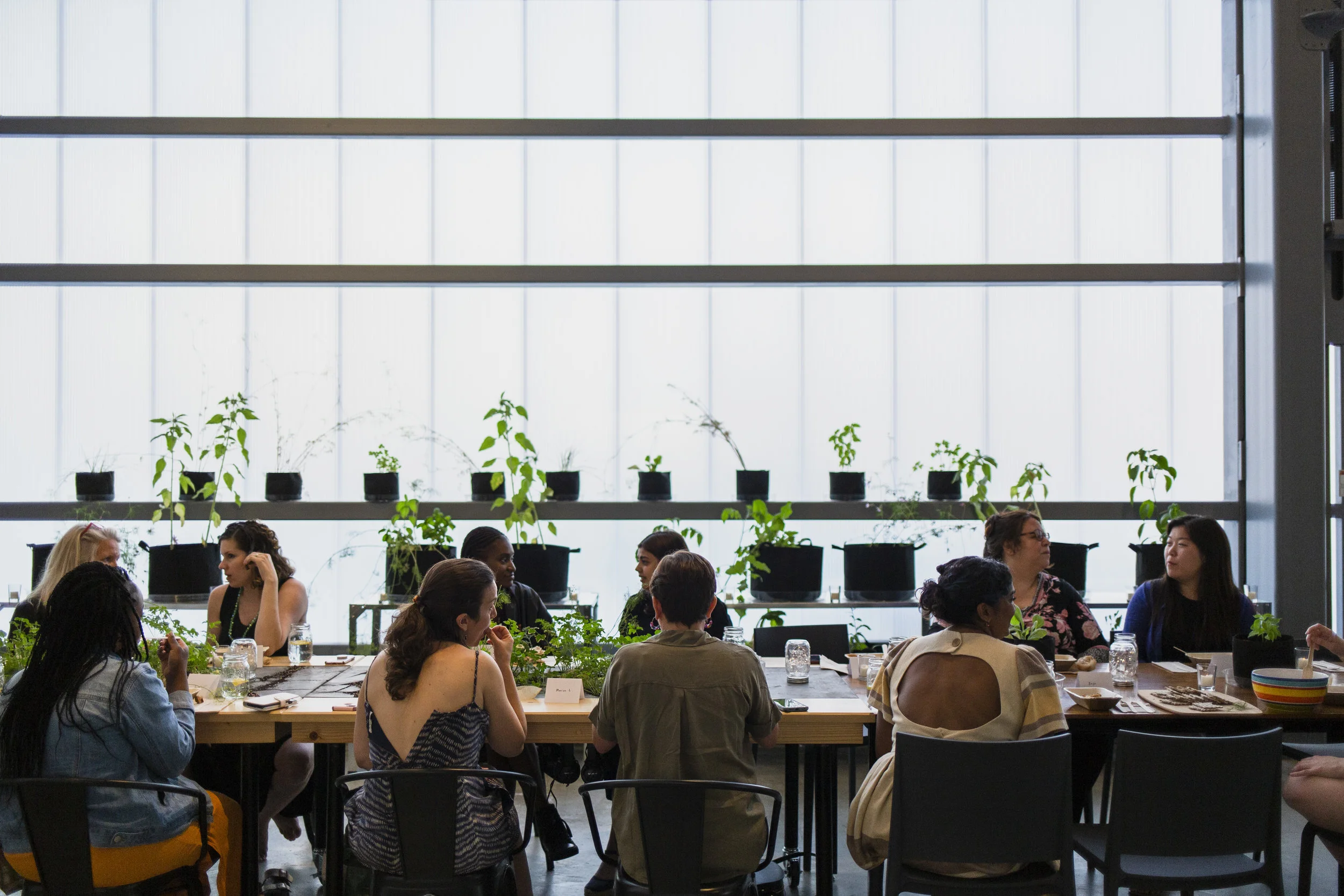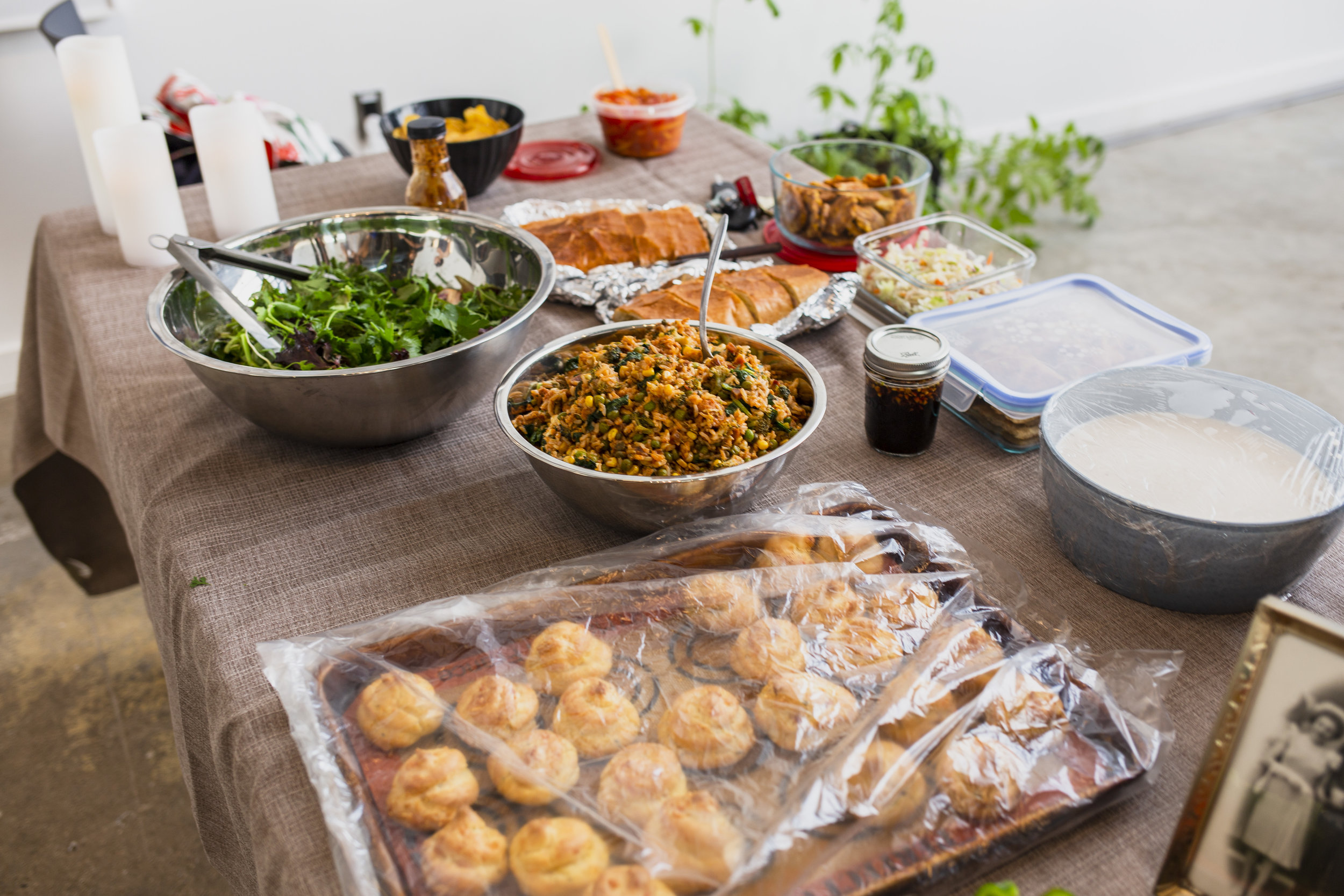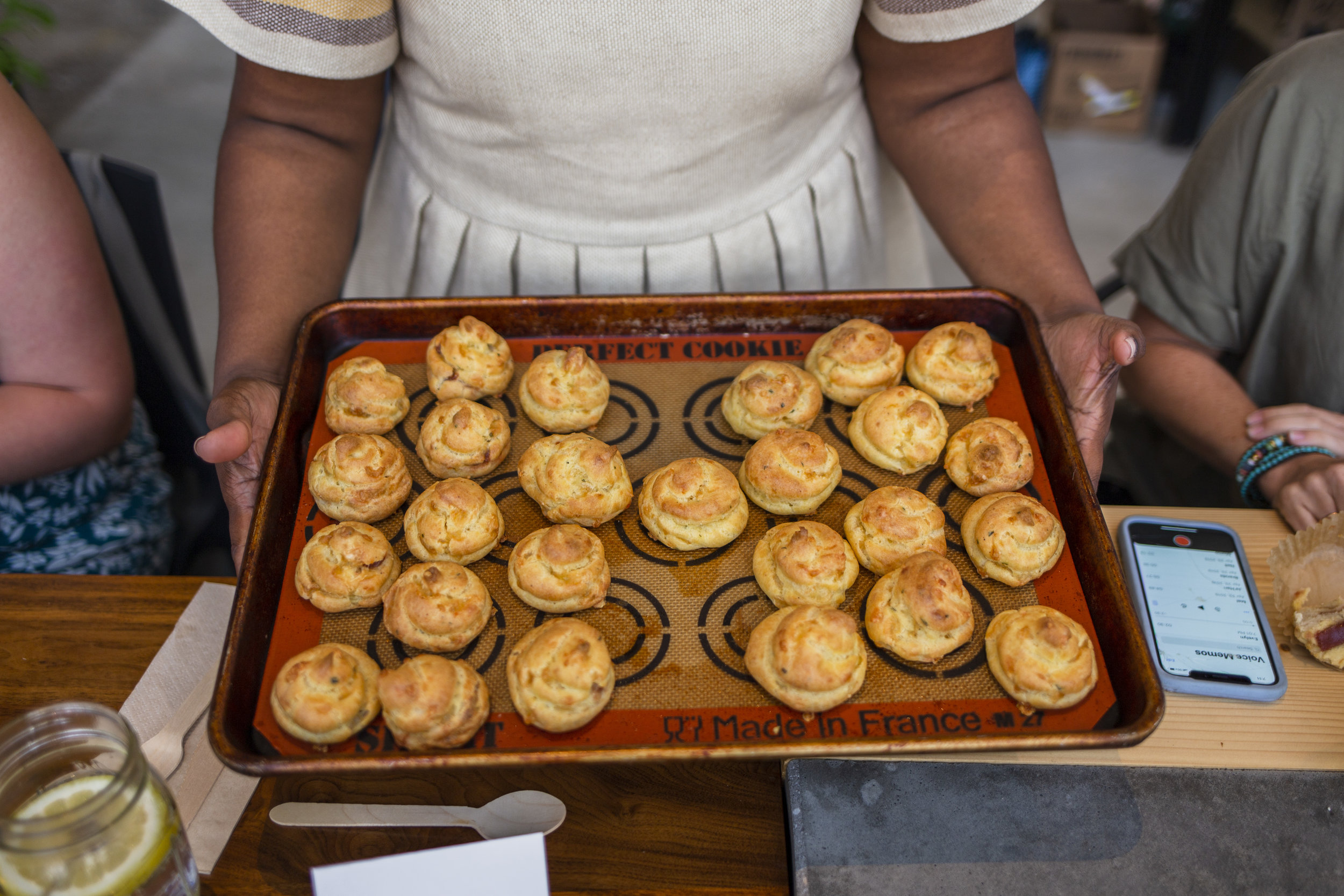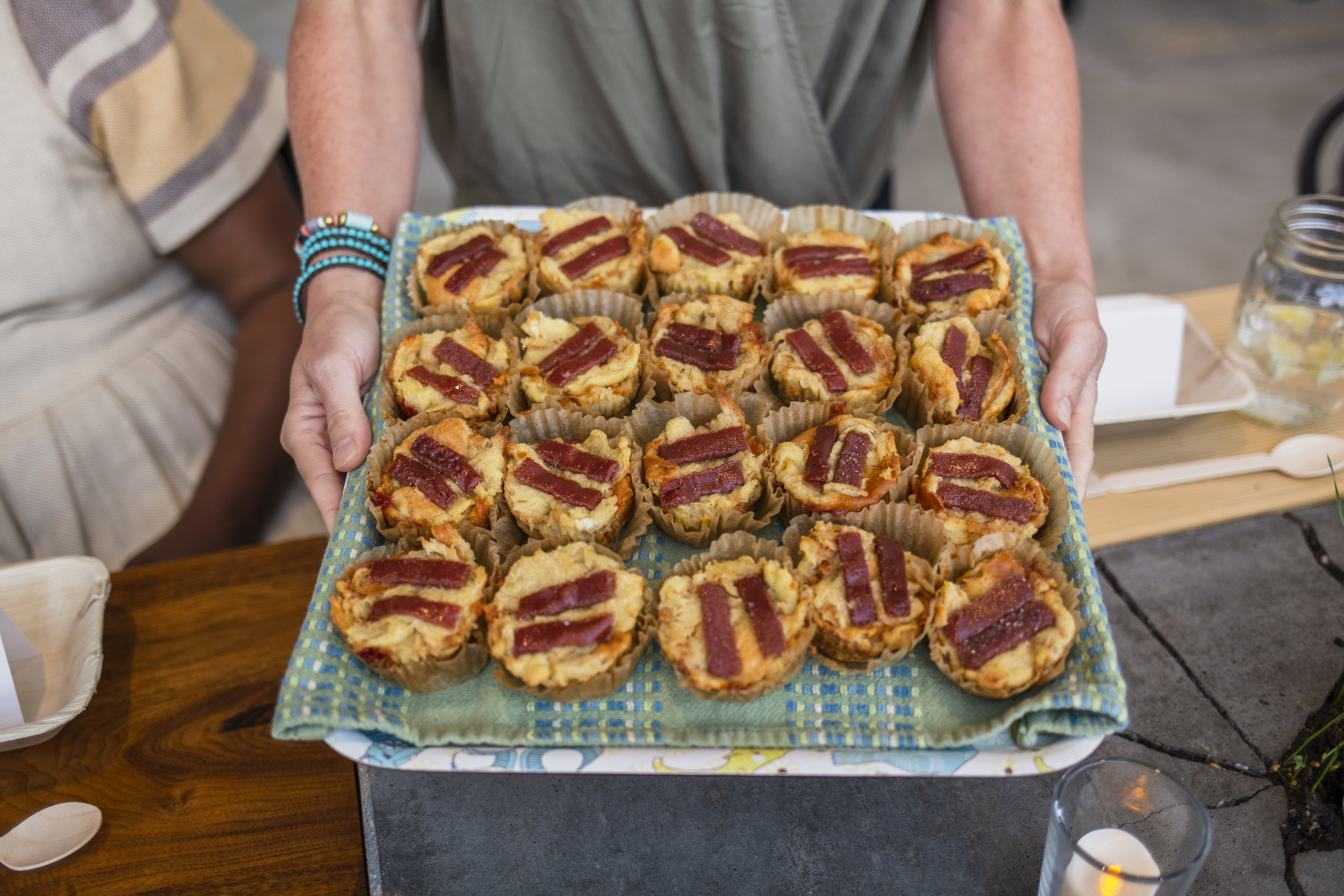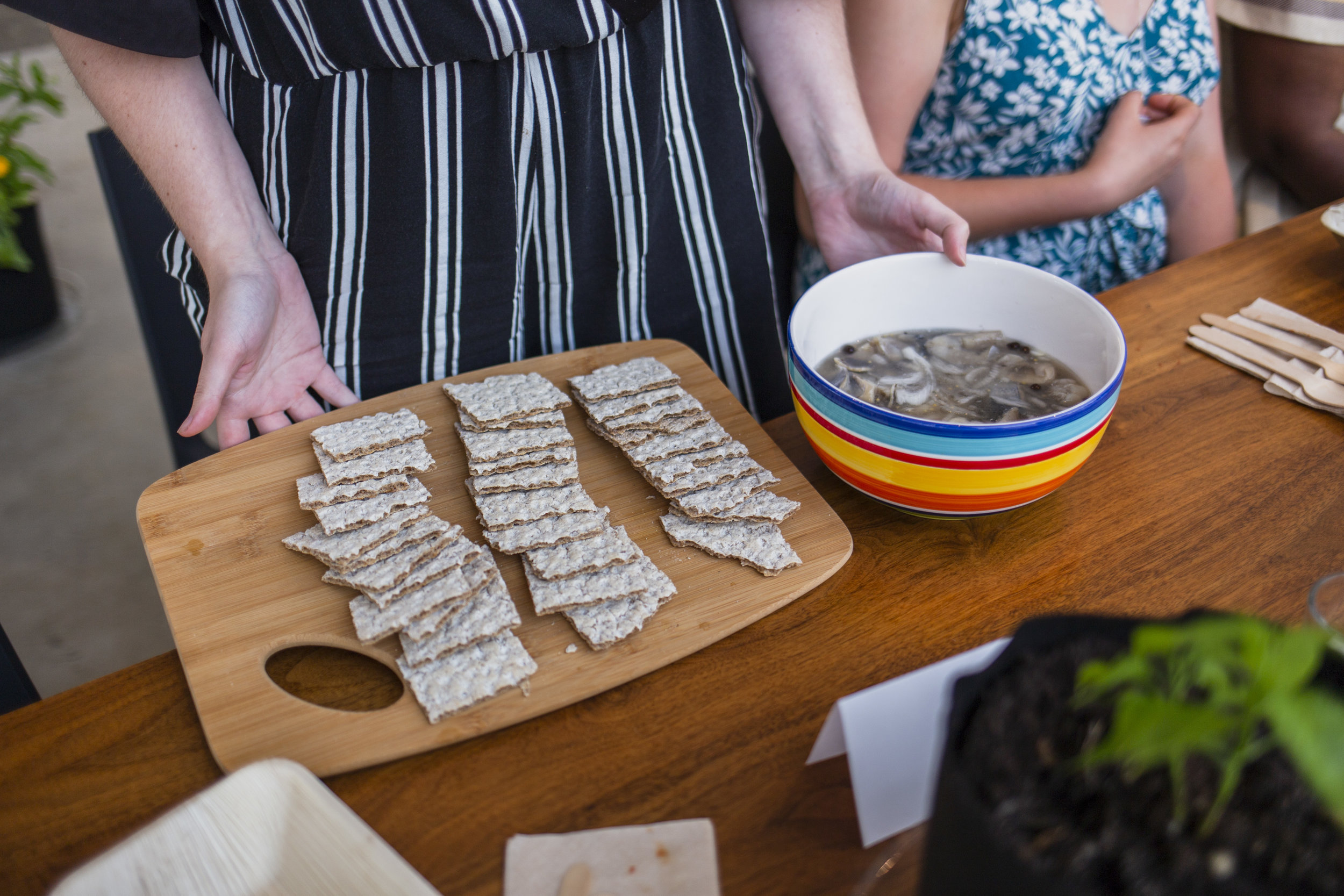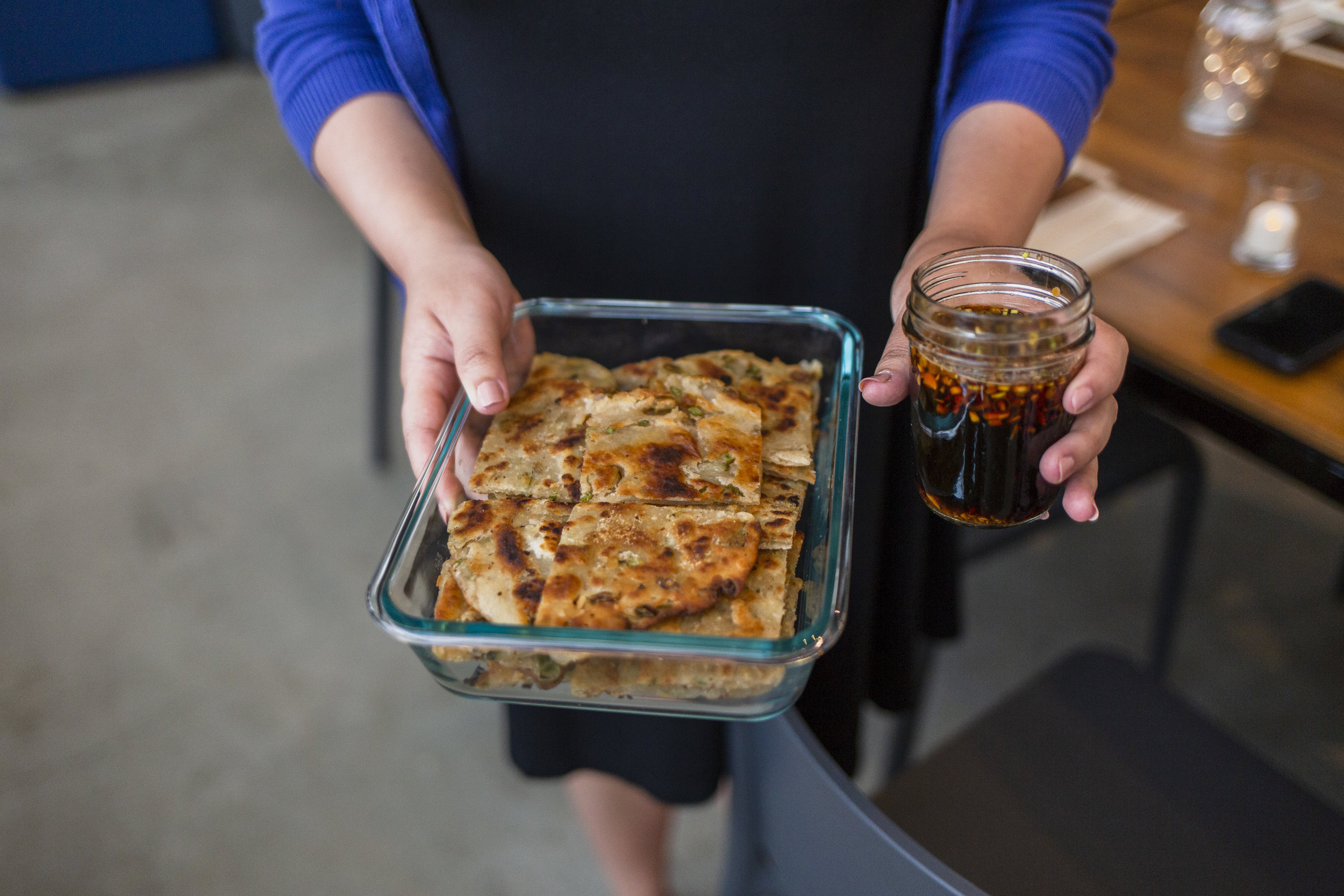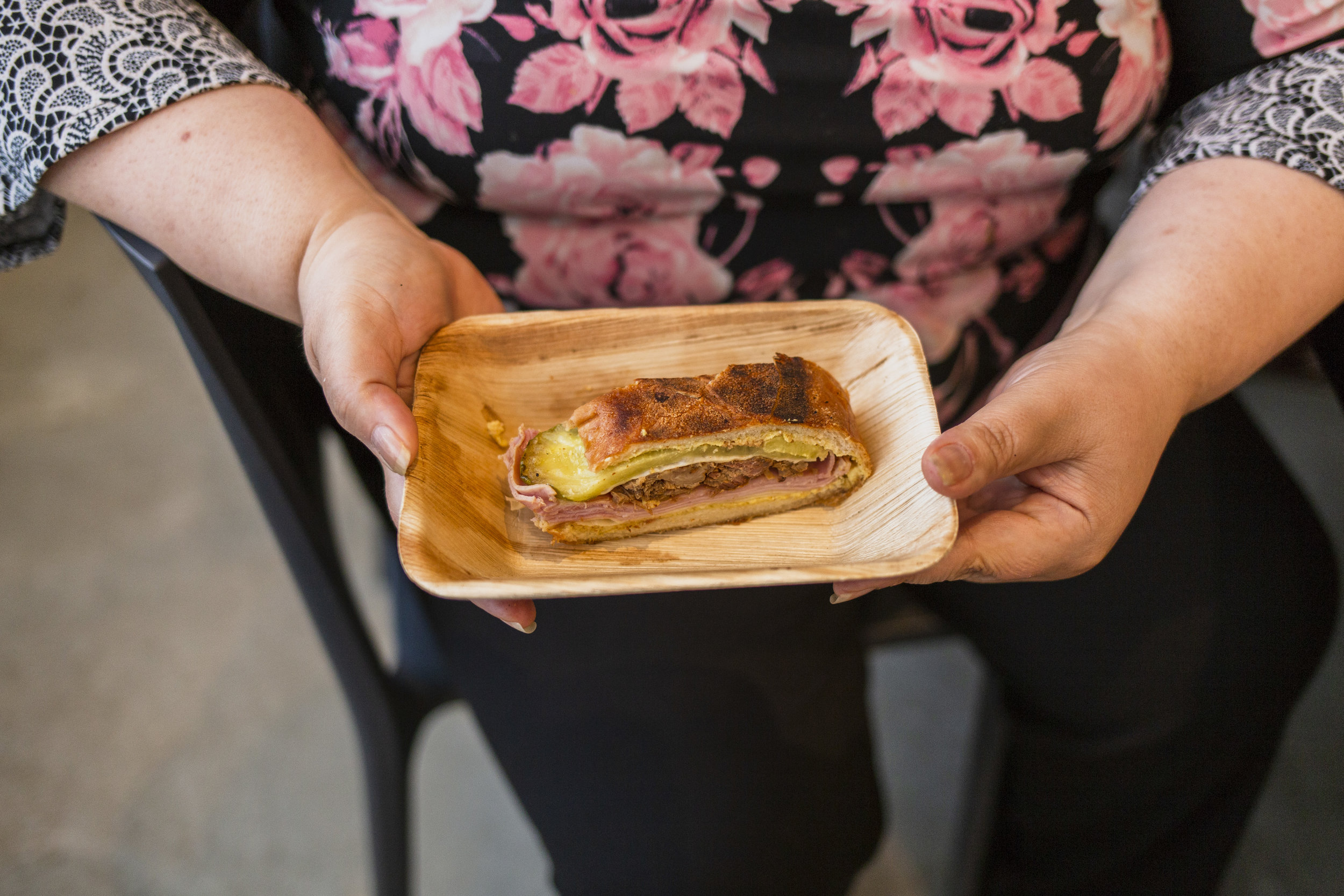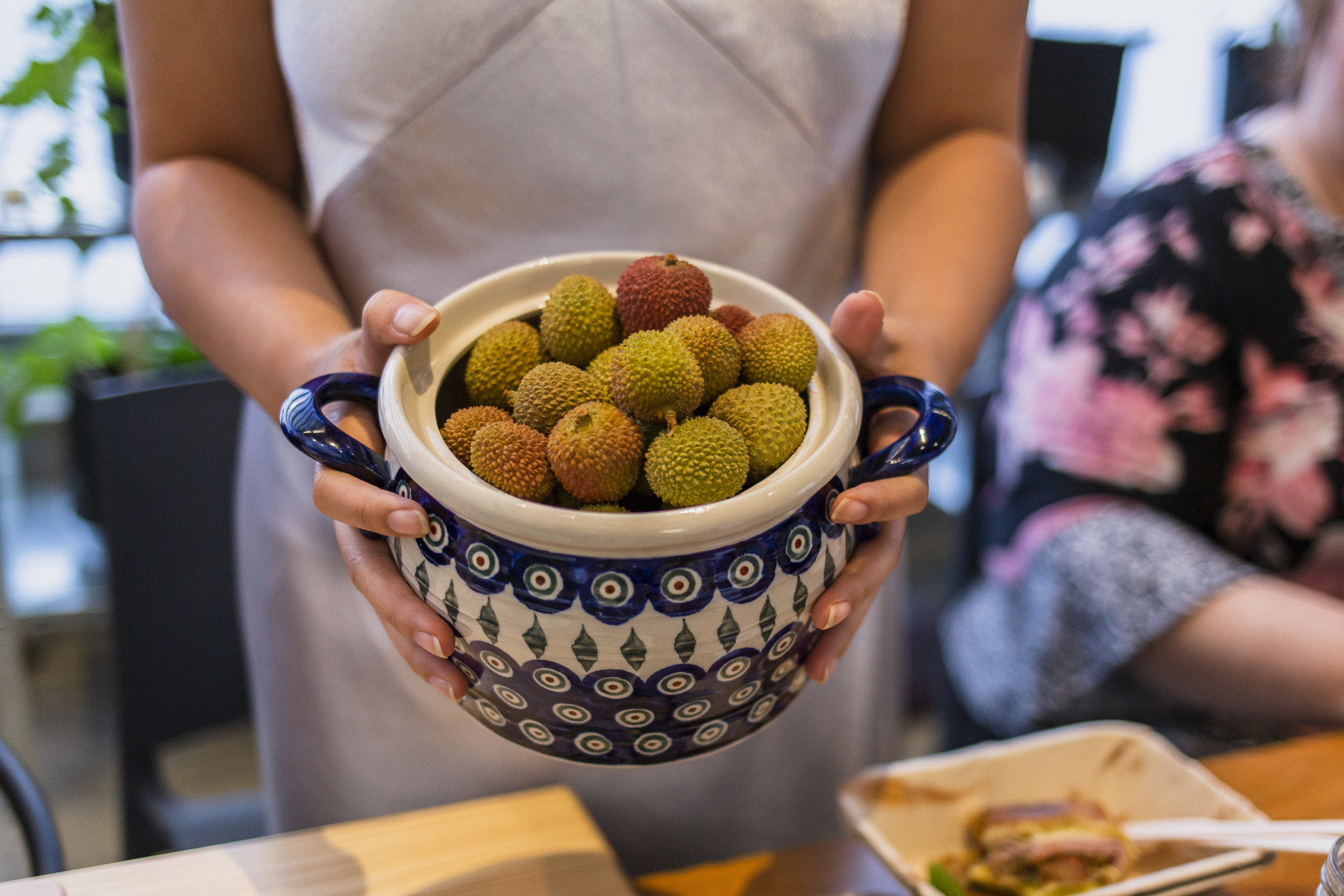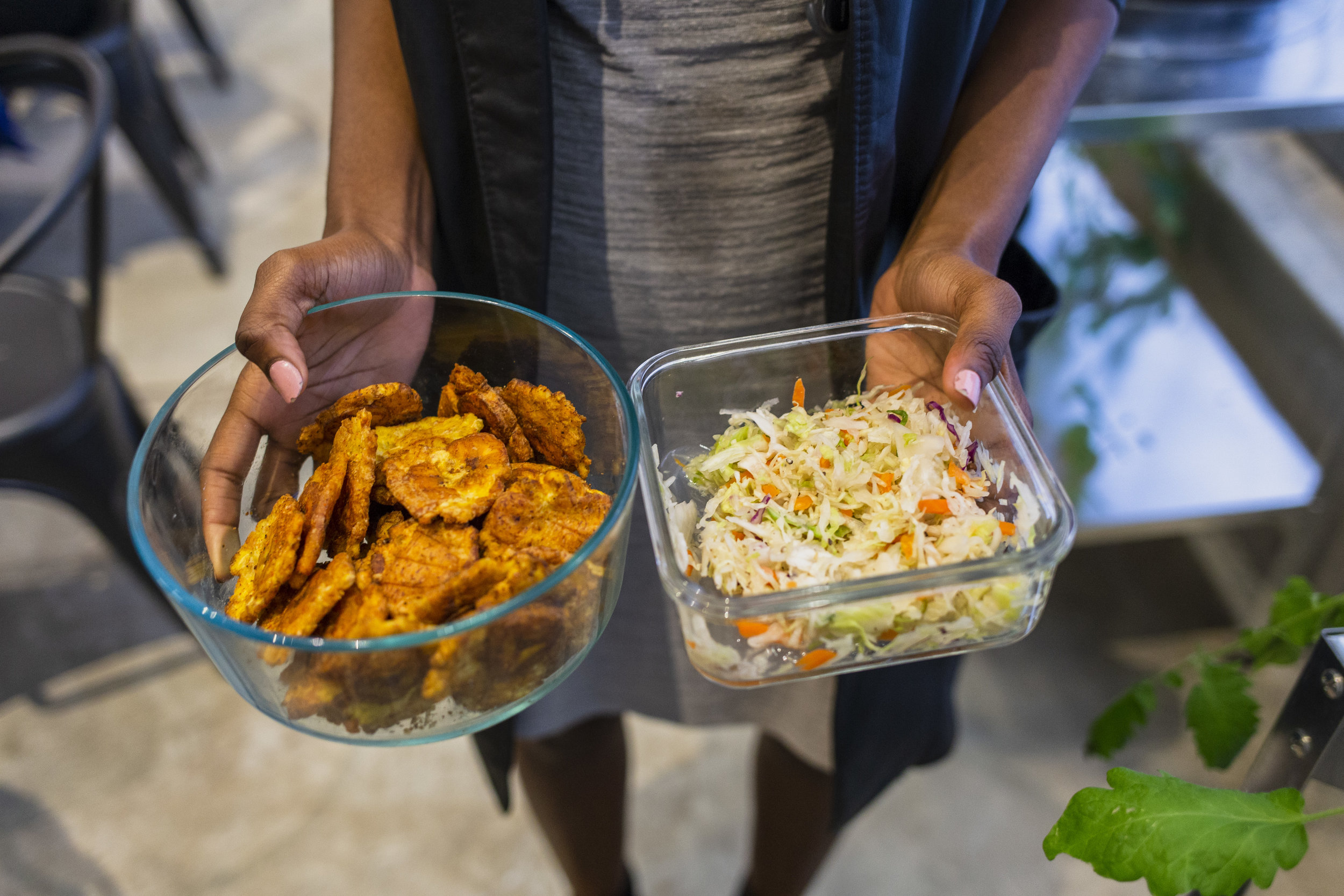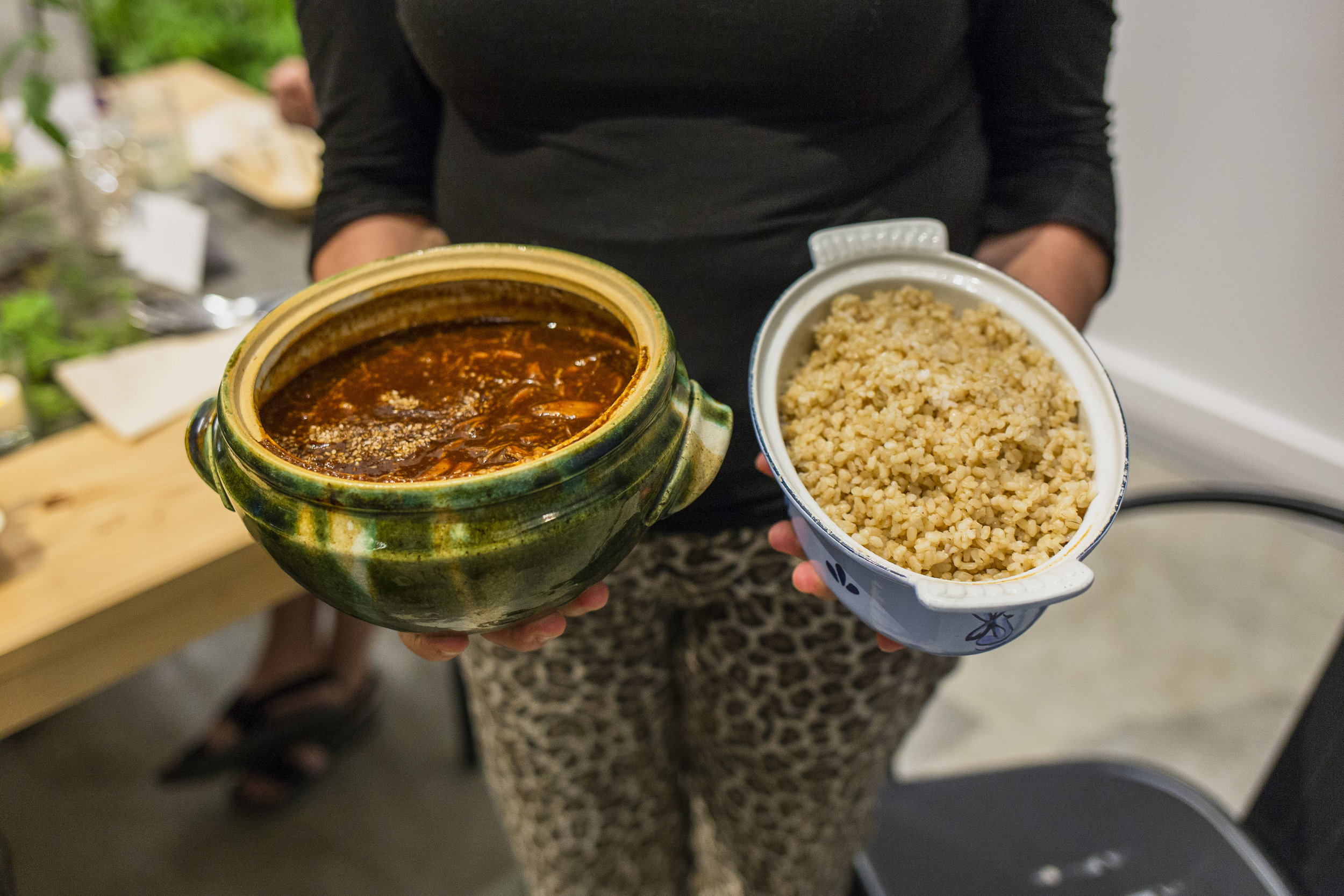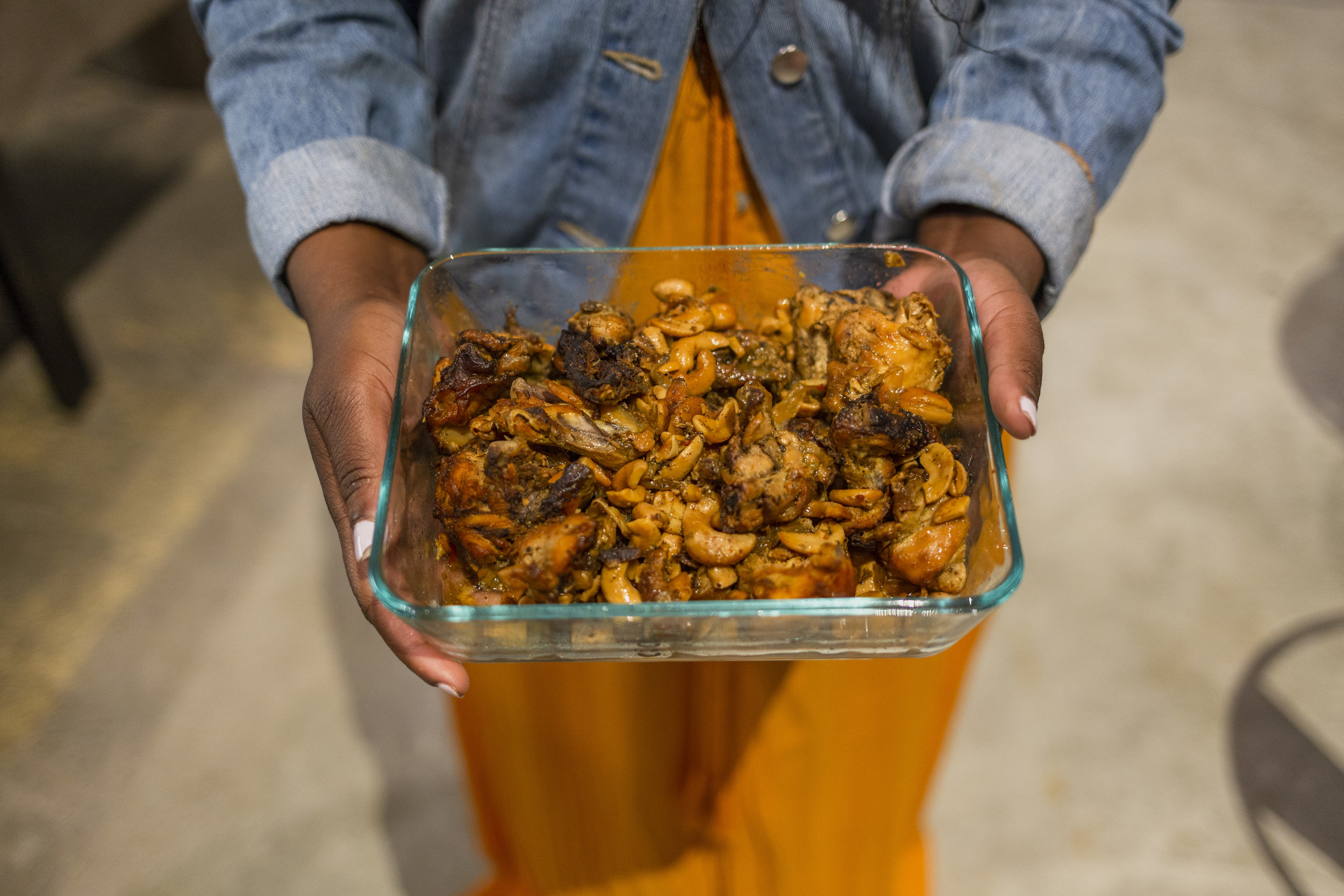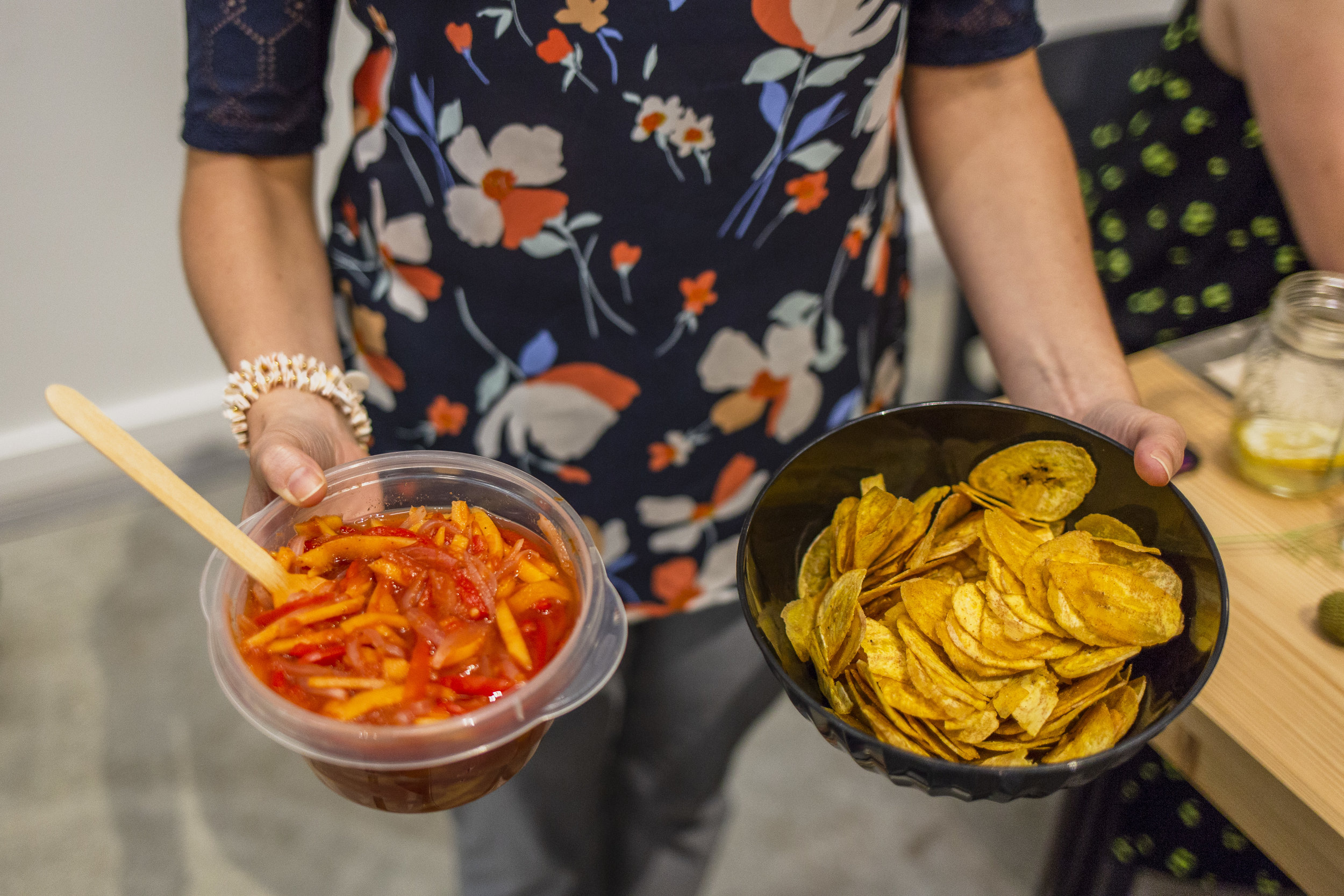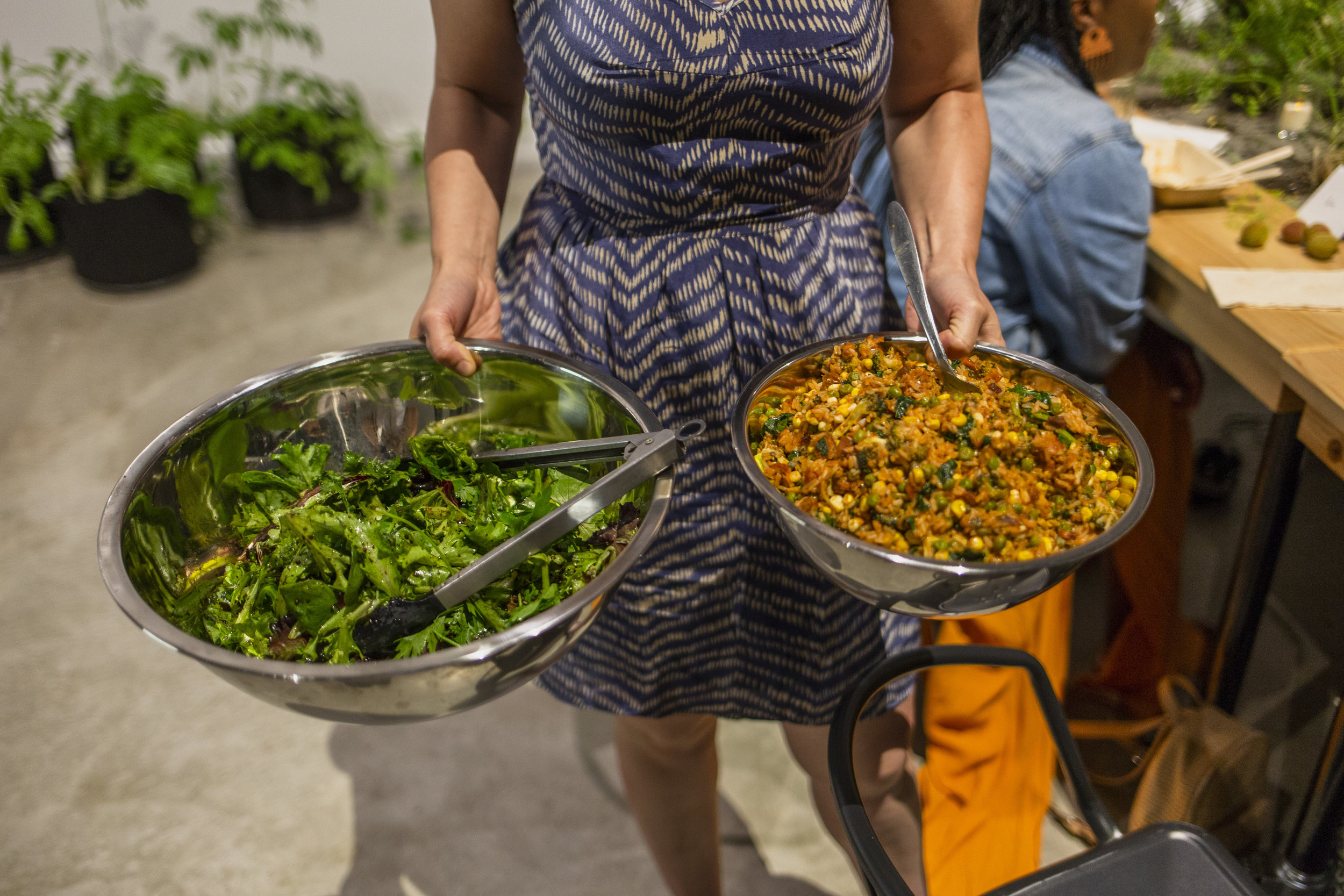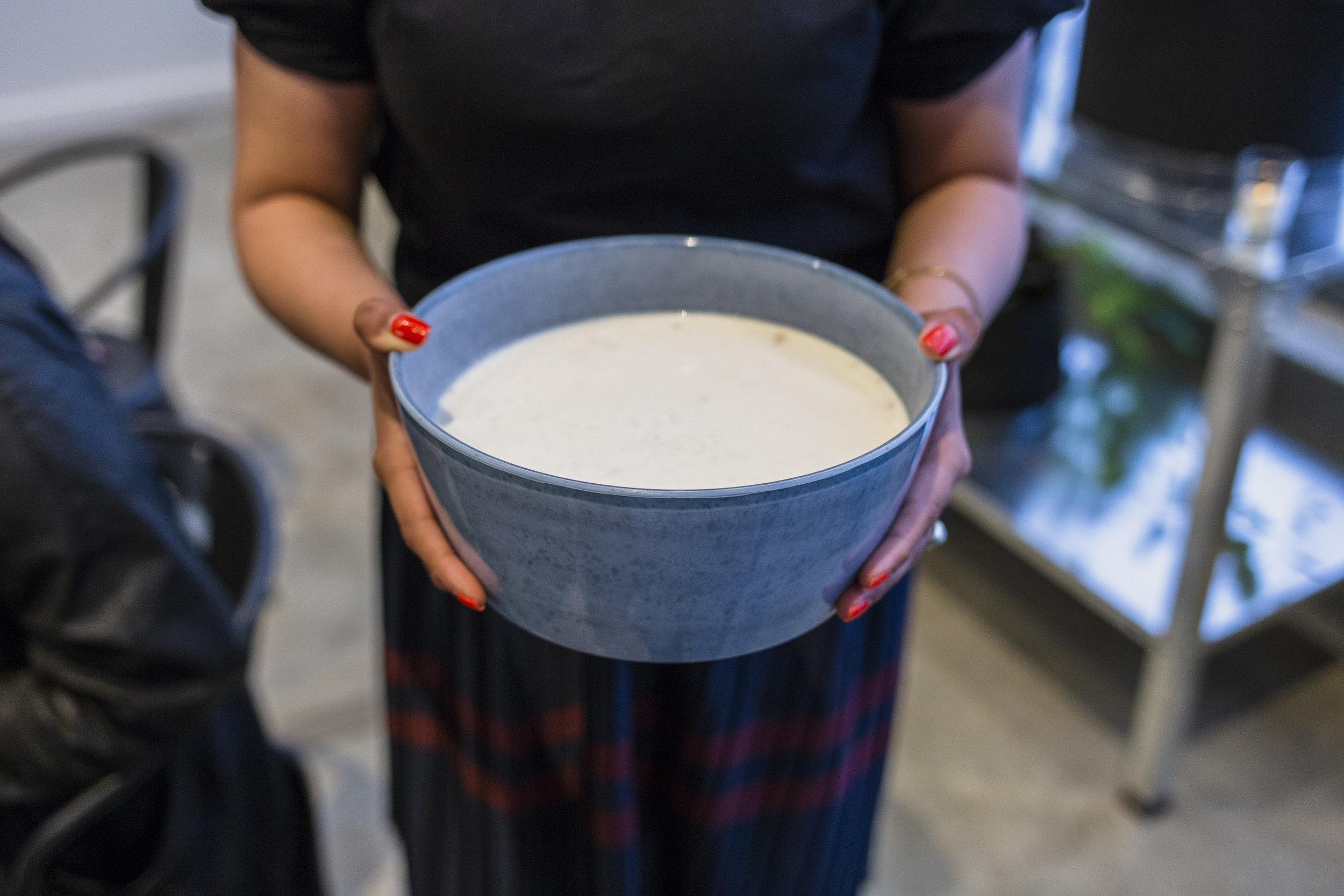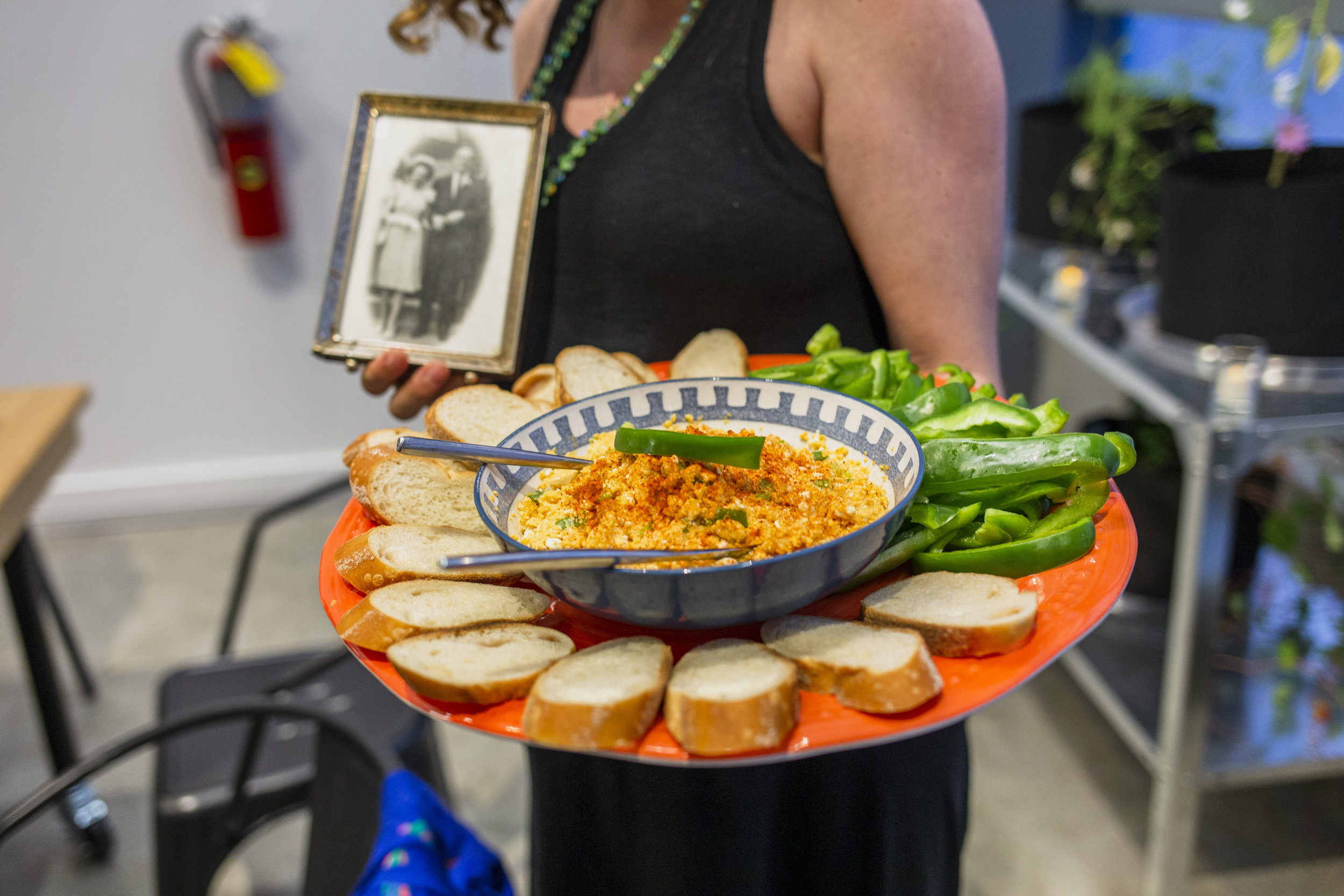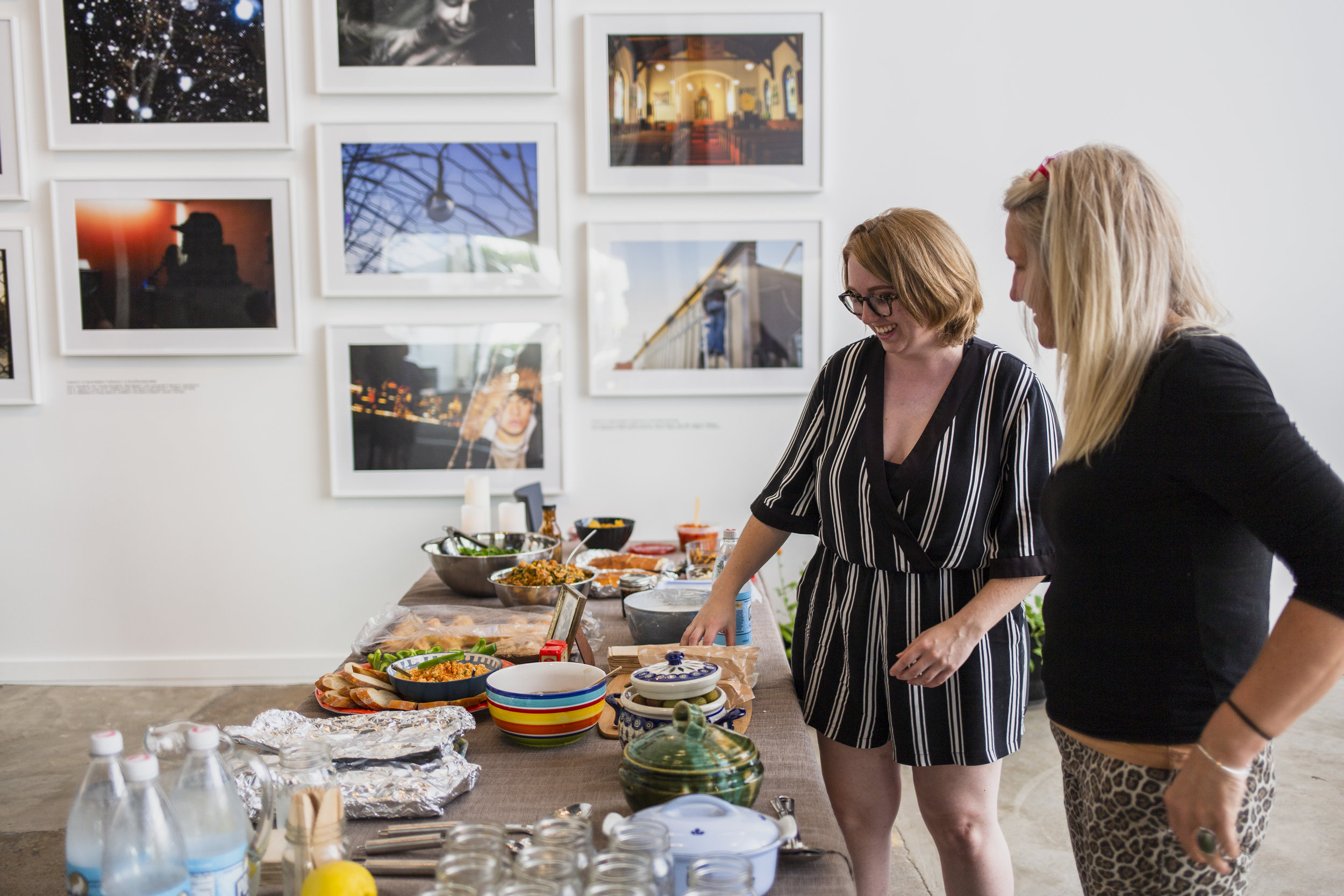Aquí y Allá: Juntos A La Mesa
Artist Evelyn Rydz at ICA’s Watershed
All photos by Mel Taing
Boston-based visual artist Evelyn Rydz partners with East Boston’s Eastie Farm on a provocative installation at the ICA Watershed inviting us all to the table to share the power of community, food and cultural identity.
On childhood visits to Milwaukee, I liked to linger in my grandmother’s kitchen. Even at a young age I understood that she cooked with love, authority and nostalgia. She learned from her mother, who learned from hers. I watched as she scooped flour out of one deep, lined drawer and sugar out of another. Her coffee cake balanced a thick mantle of butter-sugar-flour streusel on top of a comparatively modest layer of cake; she knew we liked the streusel more, so she doubled it. Every mouthful connected me to my German roots and assured me of my grandmother’s love. With her I felt as warm as the oven door, even on bleak Milwaukee mornings.
For others yearning to reconnect to their own food history, Boston-based artist Evelyn Rydz’s ongoing project, Comida Casera, helps people recall warm memories from their past, develop cross-cultural understanding and build meaningful social networks of support. Since 2016 she has been organizing multi-generational culinary gatherings featuring women’s recollections of food, home and family at various locations. Through Comida Casera (Spanish for home-cooked or comfort food) she has welcomed over 250 women from all over the world. Representing an impressive range of nationalities and ages (from 18–80), as well as diverse socioeconomic, residential and professional backgrounds, Comida Casera’s participants share homemade dishes that connect them to important women in their lives and the powerful stories that go with them.
It’s not by accident that Rydz launched Comida Casera in 2016. As she writes, “Within the current political context of so much conflict and division, the Comida Casera project seeks to celebrate differences, create a shared space of exchange, honor past and present women who have meaningful impacts on our lives, and build lasting connections and community that exist well beyond each event.”
Similarly invested in creating opportunities for sharing stories and food in open spaces are the founders of Eastie Farm in East Boston, Kannan Thiruvengadam and Mónica Leitner-Laserna. As Steve Holt wrote in “The Little Farm that Could” published in our Summer issue, “For many in the community, the welcome and diversity that they find [at Eastie Farm], around a tiny patch of dirt on Sumner Street, stands in stark contrast to the exclusive luxury housing developments popping up throughout Eastie.”
This summer, Rydz collaborated with Eastie Farm and the Institute of Contemporary Art to create “Aqui y Alla: Juntos a la Mesa” (Here and There: Together at the Table) at the Watershed, the ICA’s East Boston exhibition space which opened last year. The interactive installation and corresponding events highlight the crucial role communal spaces and in-person gatherings play in nurturing resilient communities. The installation resides in the Watershed’s Harbor Room, a gallery dedicated to the history of East Boston and the shipyard.
Rydz designed long rectangular tables fashioned with headphones which invite visitors to pull up a chair and listen to recordings of Comida Casera participants telling their personal, inspirational stories. In the center of each table a slab of thick, grey cement sports deep cracks, out of which spring bright green herbs, weeds and flowers planted by Eastie Farm. Potted plants—including many edible species—line the back of the space, inviting visitors to pick and to taste. The installation includes cards and pencils so visitors can reflect on their own stories and share with others. Rydz includes participatory elements like this in many of her projects.
For Eastie’s Thiruvengadam, “Aqui y Alla: Juntos a la Mesa” is “a visual statement of the resilience of plant communities in the face of industrial domination.” It’s also a metaphor for East Boston’s resilience in the face of rapid development and women’s resilience in the face of political and economic adversity.
“Community does not have to be defined by a place,” Rydz says. “People can be from all over and be part of a community. What matters is what we care about and that we care for each other… Community should be all-welcoming. No end, no border.” Rydz recalls her mother saying: “There is always room for more people. Whether you are cooking for two or 20 it’s the same, you’re cooking.”
Participants at Comida Casera identify by their first names only. Since 2016, dishes have been shared by women from Korea, China, Italy, Ecuador, Venezuela, Mexico, India, Cambodia and more.
Ebele brought a dish of sweet plantains that her Nigerian mother often cooked for the family. She spoke of her mother’s inclusion of plantains in most of their meals and of the Igbo-Nigerian tradition of omugwo, where the mother’s mother comes to stay after the birth of a baby.
Christina remembered plantains fried as tajadas in Venezuela. She spoke of the love and care her grandmother brought to her preparation of tajadas and how it inspires her now to be more patient in the way she cooks for her own young family.
Huiling brought dumplings like those her grandmother used to make in Northern China. She shared a memory of her grandfather sticking up for her one night, sharing his portion of dumplings since her grandmother would only serve them to her brother.
And Krishna recalls her mother making milky Indian pudding on birthdays, a tradition passed from woman to woman in their culture.
The artist and the farmer found common ground in bringing their vision to life, with the dedicated support of the ICA. “Evelyn understood the value system of Eastie Farm,” Thiruvengadam says. “She understands the eco-system and its health.” Rydz agreed, “I felt like we had common ideas. We want to celebrate differences. We want everyone to have a seat at the table.”
Rydz says women a la mesa often make new friends and share recipes. Many participants have been inspired to plan their own versions of Comida Casera in their communities. She’s also been impressed with the stories that have been shared from tables at the Watershed. This is where it begins to feel like the start of a movement.
“Something magic happens,” Rydz says, explaining that when people eat something someone else prepared with love, and eat from the same plate, they share a huge amount of trust. Sharing food and stories, people become vulnerable, and that vulnerability helps people feel trusted and part of a special family.
Rydz fondly remembers her mother screaming out “a la mesa!” when dinner was ready. “It’s a call to action,” she says; a call to welcome strangers, a call to share of oneself. I hope to be able to experience Comida Casera for myself sometime soon. And if I do, I think I’ll bring my grandmother’s coffee cake.
Visit the ICA’s website to learn more about related upcoming events:
Garden Taste. Sat, Aug 24, 2:30 PM
Local chefs discuss their use of local food sources.



